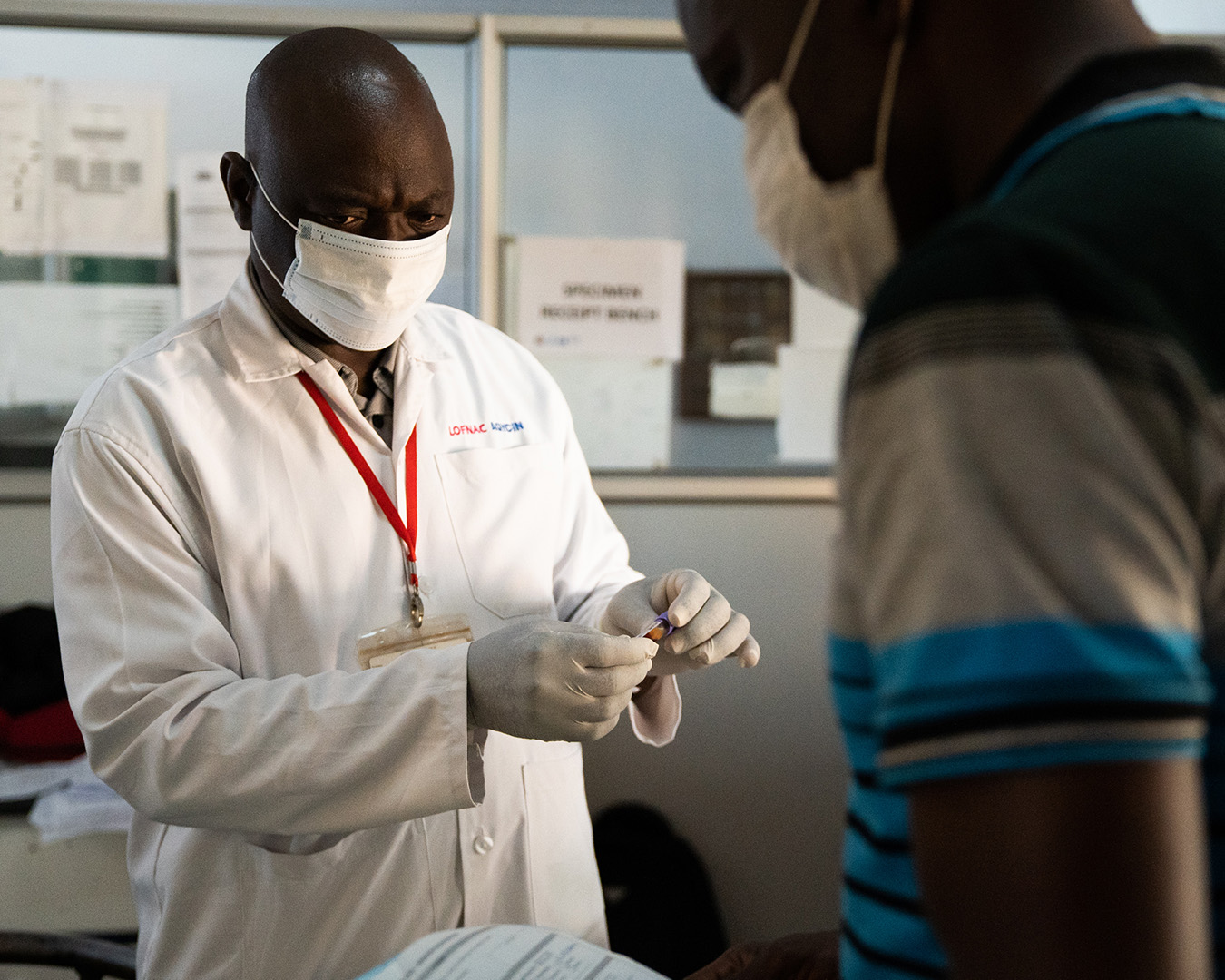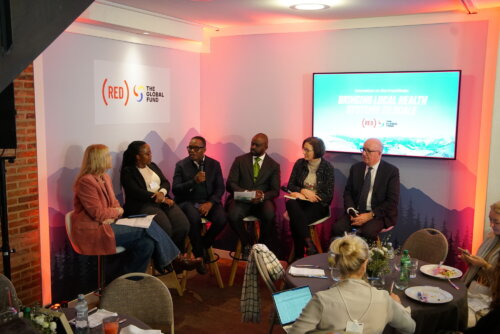Highlights of the 2024 AIDS Conference in Munich: Putting People First
This is a guest (RED)ITORIAL written by Dr. Herry Mapesi, Medical Lead, Pan Africa – Infectious Diseases, Roche Kenya. As a (RED) Champion, Herry helps spread the word about (RED) and Roche’s shared mission to raise awareness around the importance of testing in the fight against AIDS.
Hope, community empowerment, and inspiration for a healthier tomorrow. These were the main feelings coming out of the 25th International AIDS Conference hosted by the International AIDS Society in Munich from July 22-26 with the theme ‘Put people first.’ The event gathered thousands of leaders, advocates, and key organizations committed to the fight against HIV/AIDS to showcase exciting community-led innovation alongside scientific breakthroughs and game changers.
Over the last decade, we achieved tremendous progress in changing the statistics on HIV/AIDS. However, according to the recent report published by the Joint United Nations Programme on HIV/AIDS (UNAIDS), 1.3 million people acquired HIV in 2023 worldwide, with three regions experiencing rising numbers of new HIV infections: eastern Europe and central Asia, Latin America, and the Middle East and North Africa.
While advancements in science bring light to possible prevention methods, there is much more to do to ensure people living with HIV can access appropriate care in order for them to live their best, healthy lives. Currently, one person dies every minute due to AIDS-related complications and several factors play a key role in that, including stigma and discrimination against marginalized communities, gender discrimination, and cuts in resources.
Partnerships between public and private sectors and nonprofits are critical to sustain the progress made so far and help shape policies that can address community hurdles and create more resilient healthcare systems. An example is the work of (RED) to support the fight against HIV in low-resources settings through partnering with private companies such as Roche to raise funds for The Global Fund to support the fight against HIV/AIDS. This is very important especially now we see the reduction of the resources available for HIV (US$ 19.8 billion) dropped by 5% from 2022.

There is an urgent need to leverage innovations to enable people-centric strategies and ensure efficiencies to support this global fight. One way is to use an integrated test approach which is recommended by the World Health Organization (WHO) to increase access to diagnosis and monitoring of people’s status. During the conference, I was privileged to take part in the Symposium ‘Managing and Thriving in HIV Care: Advancing Innovative Solutions Towards Elimination of Comorbidities Such as HPV, HCV & TB’, where we discussed the importance of scaling up the available resources and investments in the fight against HIV and COVID-19. Countries can leverage existing infrastructure from the investments made in HIV programs to implement integrated testing approaches and expand access to screening of high-burden diseases such as tuberculosis, hepatitis, and cervical cancer, a preventable disease caused by the human papillomavirus (HPV). This will help to fill the diagnostic gap, especially in low-income and lower-middle-income countries where only about 19% of populations have access to the simplest diagnostic tests.
Are we going to end the AIDS epidemic by 2030? That is a million dollar question and it’s probably too early to tell. After the advancements made in the fight against HIV for the past decades, failure is not an option. In order to continue this fight, we need continued investment in HIV in order to be able to not only sustain the progress that we have made so far but also to expand testing and treatment of other comorbidities impacting people living with HIV. The use of current tools that we have such as long-acting injectables will be key to reducing new infections, however, we need to make sure these tools are accessible in low and middle-income countries. Innovative ways such as integrated testing will increase access to early diagnostics. Finally, stigma, gender discrimination and criminalization of HIV must stop in order to increase access to HIV testing, treatment and care.
Conferences like AIDS 2024 provide optimism for the future of HIV/AIDS treatment and care—especially if we continue to put people first.





